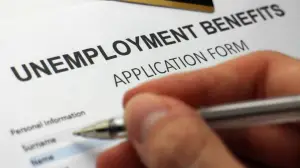By Talmon Joseph Smith and Ben Casselman August 24, 2022
Black Americans have been hired much more rapidly in the wake of the pandemic shutdowns than after previous recessions. But as the Federal Reserve tries to soften the labor market in a bid to tame inflation, economists worry that Black workers will bear the brunt of a slowdown — and that without federal aid to cushion the blow, the impact could be severe.
Some 3.5 million Black workers lost or left their jobs in March and April 2020. In weeks, the unemployment rate for Black workers soared to 16.8 percent, the same as the peak after the 2008 financial crisis, while the rate for white workers topped out at 14.1 percent.
Since then, the U.S. economy has experienced one of its fastest rebounds ever, one that has extended to workers of all races. The Black unemployment rate was 6 percent last month, just above the record low of late 2019. And in government data collected since the 1990s, wages for Black workers are rising at their fastest pace ever.
Now policymakers at the Fed and in the White House face the challenge of fighting inflation without inducing a recession that would erode or reverse those workplace gains.
Decades of research has found that workers from racial and ethnic minorities — along with those with other barriers to employment, such as disabilities, criminal records or low levels of education — are among the first laid off during a downturn and the last hired during a recovery.
William Darity Jr., a Duke University professor who has studied racial gaps in employment, says the problem is that the only reliable tool the Fed uses to fight inflation — increasing interest rates — works in part by causing unemployment. Higher borrowing costs make consumers less likely to spend and employers less likely to invest, reducing pressure on prices. But that also reduces demand for workers, pushing joblessness up and wages down.
“I don’t know that there’s any existing policy option that’s plausible that would not result in hurting some significant portion of the population,” Mr. Darity said. “Whether it’s inflation or it’s rising unemployment, there’s a disproportionate impact on Black workers.”

